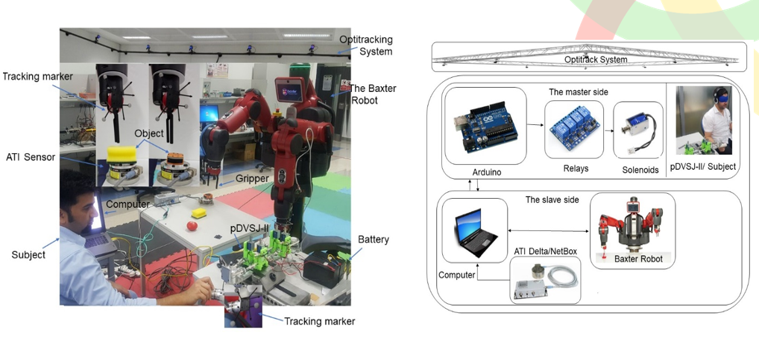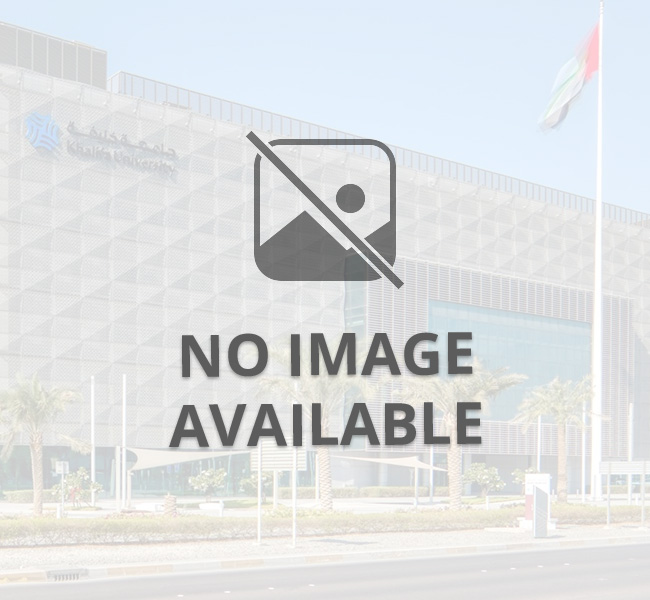Dr. Kinda Khalaf is currently the Associate Dean of Undergrdaute Studies at the College of Medicine and Health Sciences at Khalifa University of Science and Technology in Abu Dhabi, where for the last 10 years she served as founding interim chair, associate chair and accreditation leader of the Department of Biomedical Engineering. Prior to joining KU, she held faculty appointments in Engineering and Medicine at the University of Miami (Florida, USA), the American University of Beirut (Lebanon), where she held the first joint appointment between the faculties of Engineering and Medicine, and the American University of Sharjah (UAE). Dr Khalaf is a US National Merit Scholar and is on the list of International Who is Who of Professionals since 2012. She has been awarded the prestigious LAMME Scholarship, the Woman of Engineering Award for outstanding Academic Achievement, the Presidential Fellowship Award, the University of Miami College of Engineering Teaching Award, and the Khalifa University Faculty Excellence award.
Dr. Khalaf is the director of the Gait and the Rehabilitation Labs at KU., and Rehabilitaion leader at the Health Engineering Innovation Group (HEIG). Her research agenda spans neuromusculoskeletal biomechanics and control, computational biomechanics, biorobotics, and innovation in biomedical wearables, sensors, and devices for rehabilitation and beyond. Her research record is reflected in over 200 publications in high impact journals, conference proceedings and book chapters, patents, multiple national and international research grants, multidisciplinary keynote speeches and lectures, in addition to regular organization and chairmanship of local and international conferences.
An advocate of innovation in engineering and medical education, she has co-established an interdisciplinary education research group focusing on implementing curricular innovative pedagogies and the design of quantitative assessment instruments and employability skills in engineering and medical programs. Dr. Khalaf serves on the Board of Trustees for Emirates College of Technology since 2021, Siemens Healthineers Innovation Think Tank since 2020, Avicenna HCG, as well as the review board of the Abu Dhabi Council for Education (ADEK) Programs since 2019.
In 2021, Dr. Khalaf co-founded a startup company AL MASHYAH for smart sensor-based and markerless gait and motion assessment platforms (www.mashyah.com). Since then, the company was awarded the Khalifa Innovation Center (KIC) Award and the Mohamad Bin Rashid AL Maktoum Innovation Award in 2022 and 2023, respectively.
Dr Khalaf has served as founder and chairperson of the UAE branch of the Engineering in Medicine and Biology Society (IEEE, EMBS), and is a founding member of the IEEE education chapter in the UAE (IEEE EDUCON). She is a member of the American Society of Mechanical Engineers (ASME), American Society of Biomechanics (ASB), American Society for Engineering Education (ASEE), Biomedical Engineering Society (BMES), Tau Beta Pi (Honorary Engineering Society), Pi Tau Sigma (Honorary Mechanical Engineering Society), Alpha Eta Mu Beta (Honorary Biomedical Engineering Society), the Society of Women Engineers (SWE), and the International Institute of Women Engineers (IIWE).

Project 1: Multi-modal quantitative assessment of human physiological and psychological performance based on multisensory fusion, VR, and artificial intelligence
Main Objective
This project aims to devise and implement a comprehensive AI-based multisensory platform for the quantitative assessment and prediction of various physiological and psychological parameters of in disease towards improving rehabilitation and shedding light on disease etiology.
Specific Aims:
O-1 Design and build an integrated system of smart sensors and wearables capable of accurately and precisely quantifying various physiological, psychological and environmental parameters of humans in disease and extreme conditions.
O-2 Design and develop the AI-based computational platform that integrates the wearables and provides feasible human interface.
O-3 Conduct pilot studies to develop an experimental protocol for the comprehensive characterization the above-mentioned parameters.
O-4 Implement the protocol in clinical and extreme condition settings
O-5: To transfer the developed technology towards real-life applications through collaboration with our UAE industrial collaborators (Specialized Rehabilittaion Hospital (SRH), Cleveland Cliniic Abu Dhabi (CCAD), Mubadala Healthcare, STRATA).

Project 2: Compliant Lower Limb Cable Driven Exoskeleton for Rehabilitation and Assistance
Main Objective
This project proposes a novel compliant lower limb cable driven exoskeleton based on variable stiffness actuation for rehabilitation and assistance of patients with ambulatory challenges. This project leverages the multidisciplinary skill set of the investigating team and integrates human gait quantification and analysis with the design and development of a cable driven exoskeleton for the rehabilitation and control of affected lower limbs in neurological patients towards optimal gait trajectories and independent ambulatory function.
Specific Aims:
O-1: To build a new generation of compliant exoskeleton cable-driven based, with improved ergonomic characteristics and optimal interface with the human body (intrinsic safety, light weight, energy efficiency, effective low-impedance rendering, force control, contact stability).
O-2: To build a new generation of wearable sensorimotor interfaces to establish a connection between the human sensorimotor system and the control and sensing of the compliant exoskeleton.
O-3: To design new bilateral control and sensory feedback strategies in order to integrate the human sensorimotor system with the compliant exoskeleton through the wearable interfaces.
O-4: To validate the efficacy of human rehabilitation with compliant exoskeleton and to define new paradigms of physical human robot interaction in clinical applications.
O-5: To transfer the developed technology towards real-life applications through collaboration with our UAE industrial clinical collaborators (SRH, CCAD, MediClinic).

Project 3: Robotic Solutions with Haptic Interface for Remote Healthcare Applications: Remote Ultrasound Imaging
Main Objective
This project aims to design, develop and validate a remote ultrasound imaging system that eliminates/minimizes patient contact of healthcare workers. The technology is transferrable to other clinical applications.
Specific Aims:
O-1: To model, analyze and design a novel Haptic Interface
O-2: To realize and characterize the novel haptic interface
O-3: To verify the novel interface for human use and tele operation readiness.
O-4: To integrate the interface with the haptic teleoperation system
O-5: To validate the system by expert users and non-expert users.
Always looking and welcoming talented researchers and students at all levels within my research scope.